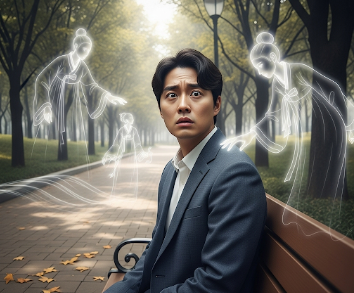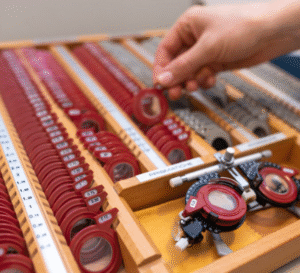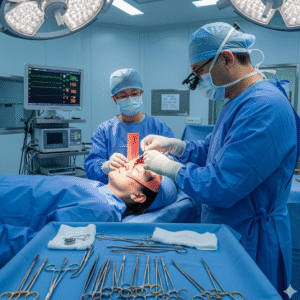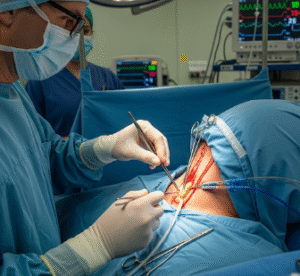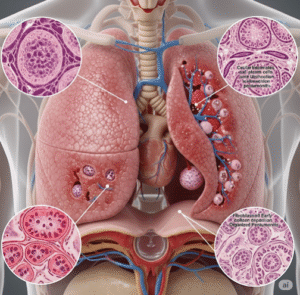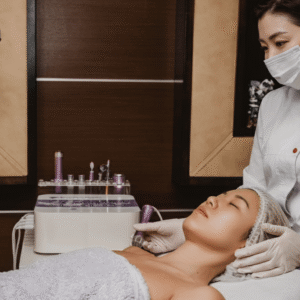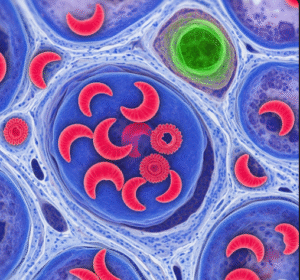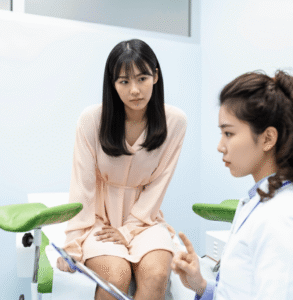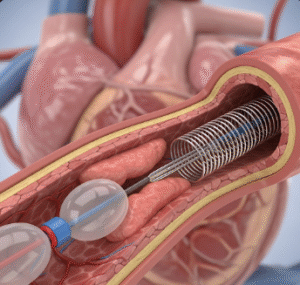Overview
Hallucinations are sensory experiences that occur without any external stimulus, meaning a person perceives something that isn’t actually present. They can involve any of the senses, including sight, sound, smell, taste, and touch.
While occasional mild hallucinations can occur in healthy individuals under extreme stress, sleep deprivation, or fatigue, persistent or severe hallucinations are often linked to neurological, psychiatric, or medical conditions. Early assessment is crucial to identify underlying causes and initiate effective treatment.
In South Korea, advanced neurology and psychiatry clinics, combined with state-of-the-art diagnostic tools, provide comprehensive care for individuals experiencing hallucinations, including both medical and psychological interventions.
Key Facts
➲ Hallucinations can involve visual, auditory, olfactory, gustatory, or tactile sensations.
➲ They can be temporary or chronic, mild or severe, depending on the underlying cause.
➲ Hallucinations may indicate mental health disorders (schizophrenia, psychosis), neurological conditions (Parkinson’s, dementia), or medical issues (infections, metabolic disorders).
➲ Certain medications, drugs, alcohol, or sleep deprivation can trigger hallucinations.
➲ In Korea, a combination of psychiatric care, neurological assessment, and advanced imaging ensures precise diagnosis and treatment.
What is Hallucinations?
Hallucinations are false sensory perceptions where the brain interprets internal signals as real external stimuli. Unlike illusions, which are misinterpretations of actual sensory input, hallucinations occur without any real external trigger.
Types of hallucinations:
➲ Auditory hallucinations – hearing voices or sounds not present.
➲ Visual hallucinations – seeing people, objects, or lights that aren’t there.
➲ Olfactory hallucinations – smelling odors without a source.
➲ Gustatory hallucinations – tasting things that aren’t present.
➲ Tactile hallucinations – feeling sensations like bugs crawling on the skin.
Hallucinations can range from brief, harmless episodes to persistent and distressing experiences requiring medical intervention.
What Symptoms Are Related to Hallucinations?
Hallucinations are primarily sensory, but they may be associated with other signs depending on the cause:
➲ Hearing voices, sounds, or music with no source (auditory).
➲ Seeing people, shapes, or objects that aren’t real (visual).
➲ Smelling unusual odors or burning smells (olfactory).
➲ Tasting strange flavors without food (gustatory).
➲ Feeling sensations such as pressure, crawling, or tingling (tactile).
➲ Anxiety, fear, or agitation triggered by hallucinations.
➲ Confusion or disorientation, especially in neurological or metabolic causes.
➲ Sleep disturbances, memory issues, or mood changes.
What Causes / Possible Causes
Hallucinations can result from neurological, psychiatric, medical, or environmental factors:
1. Psychiatric Causes
➲ Schizophrenia – commonly causes auditory hallucinations.
➲ Psychotic disorders – may include delusions and hallucinations.
➲ Severe depression or bipolar disorder – may cause psychotic symptoms.
2. Neurological Causes
➲ Parkinson’s disease – visual hallucinations are common.
➲ Alzheimer’s and other dementias – may cause visual or auditory hallucinations.
➲ Epilepsy – temporal lobe seizures can trigger hallucinations.
➲ Brain tumors, stroke, or head injury – can affect sensory perception.
3. Medical and Metabolic Causes
➲ Fever or infections affecting the brain (e.g., encephalitis).
➲ Hypoglycemia (low blood sugar) or hyperglycemia (high blood sugar).
➲ Electrolyte imbalances or liver/kidney dysfunction.
➲ Vitamin deficiencies (e.g., B12).
4. Medications and Substance-Induced Causes
➲ Drugs like cocaine, LSD, amphetamines, or cannabis.
➲ Certain prescription medications, including antidepressants, antipsychotics, and steroids.
➲ Alcohol withdrawal (delirium tremens).
5. Other Causes
➲ Sleep deprivation or severe fatigue.
➲ Sensory deprivation (e.g., prolonged isolation).
➲ High stress or traumatic events.
When Should I See My Doctor?
Immediate medical evaluation is necessary if hallucinations are persistent, severe, or accompanied by other concerning symptoms:
➲ Sudden onset of hallucinations without prior psychiatric history.
➲ Hallucinations accompanied by confusion, memory loss, or disorientation.
➲ Severe anxiety, agitation, or self-harm risk.
➲ Hallucinations with neurological symptoms like weakness, vision changes, or seizures.
➲ Suspected substance-related hallucinations or withdrawal symptoms.
➲ Children or elderly experiencing new hallucinations.
Early assessment helps identify underlying psychiatric, neurological, or medical conditions and prevents complications.
Care and Treatment
Treatment depends on the cause, type, and severity of hallucinations:
1. Psychiatric Interventions
➲ Antipsychotic medications for schizophrenia or psychosis.
➲ Mood stabilizers for bipolar disorder.
➲ Psychotherapy and cognitive-behavioral therapy to manage hallucinations.
2. Neurological and Medical Treatments
➲ Treat underlying neurological disorders (e.g., Parkinson’s, epilepsy).
➲ Correct metabolic or electrolyte imbalances.
➲ Address infections, vitamin deficiencies, or organ dysfunction.
3. Substance and Lifestyle Management
➲ Detoxification and rehabilitation for drug or alcohol-induced hallucinations.
➲ Sleep hygiene, stress management, and avoidance of triggers.
4. Supportive Care
➲ Family education and supervision for safety.
➲ Structured daily routines and environmental modifications for dementia patients.
➲ Monitoring and follow-up to assess treatment response.
Treatment Options in Korea
South Korea offers cutting-edge psychiatric, neurological, and medical care for hallucinations, integrating modern diagnostics and personalized treatment plans.
Diagnosis in Korea
➲ Comprehensive psychiatric evaluation and mental health assessment.
➲ Neurological exams including EEG, MRI, or CT scans for brain pathology.
➲ Blood tests to rule out metabolic, infectious, or organ-related causes.
➲ Screening for substance use and medication side effects.
Medical Treatments in Korea
➲ Antipsychotic, mood stabilizer, and adjunctive medications based on individualized care.
➲ Advanced therapy for Parkinson’s, dementia, or epilepsy-related hallucinations.
➲ Substance rehabilitation programs with medical supervision.
Rehabilitation and Support
➲ Cognitive-behavioral therapy and psychotherapy.
➲ Multidisciplinary care combining psychiatry, neurology, and social support.
➲ Follow-up programs using digital health platforms for monitoring symptoms.
Quick Highlights Box
➲ Hallucinations are false sensory perceptions affecting sight, hearing, taste, smell, or touch.
➲ Causes include psychiatric disorders, neurological diseases, metabolic conditions, infections, medications, or substances.
➲ Symptoms may include voices, visions, unusual smells or tastes, tactile sensations, anxiety, or confusion.
➲ Korea provides advanced psychiatric and neurological evaluation, diagnostics, and treatment.
➲ Treatment may involve medications, psychotherapy, lifestyle modification, or rehabilitation.
➲ Early medical evaluation ensures accurate diagnosis and prevents complications.

